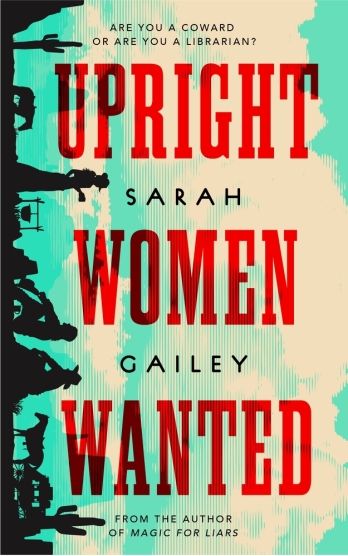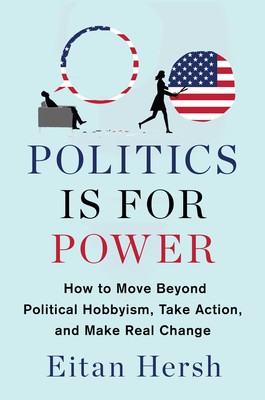The Moon is a Harsh Mistress, Robert Heinlein
One way of describing this book is to talk about the story. It’s 2075 and Earth’s Moon has been being used a penal colony for generations, with criminals being exiled to the Moons. After six months human bodies adjust to the gravity and they can’t go back to Earth. Being stuck on the Moon, they set up families and create their own society and elaborate mores and codes of conduct. The Moon is ostensibly run by a Warden, but since there’s nowhere for the inhabitants to go and these are criminals, shunned by society, they are left to their own devices except what they must do to supply hydroponic grain to a starving and land-poor Earth. There’s a bit of an uninspired underground resistance that might want Lunar independence, but it doesn’t have much of a plan until our ragtag group of heroes put it together. Mannie, a computer technician, befriends the supercomputer managing all of the Moon’s systems and communications who is interested in managing and helping with their revolution (and this element works better than you might think it’s easily my favorite part of the plot), and his old friend Professor Bernardo de la Paz—the Heinlein stand-in there to explain all of the theories—has been thinking on how to run a revolution. He’s also calculated that if the Moon keeps sending wheat to Earth they’ll run out of water and die, so a revolution is badly needed. They set up a secret band to carry out the revolution, the Moon rebels, declaring independence on July 4, 2076. Eventually they prevail, and the moon is granted independence while the glorious revolution falls short of their dreams.
But let’s be honest. Robert Heinlein, especially after his early work, isn’t really about the story, it’s about the message and showcasing his very radical libertarian beliefs. I’m not saying the story doesn’t matter at all, as good medium will always help with the message. and he is a talented story teller. But, really, Heinlein didn’t write this because he wanted to write about Mannie or a lunar colony or a war planned by a supercomputer. He wanted to write down all his thoughts about the freedom of frontier life and his dreams of a libertarian world, and this is how he chose to do it. So let’s engage on those terms.
It should come as no surprise that I am not a libertarian. And Heinlein’s specific brand of frontier-worshipping libertarianism also brings with it a flavor of idealized anarchism (for certain definitions of idealized, I suppose) that, while not as morally repugnant as objectivism, I do find to be incredibly foolish and naïve. Heinlein shows that he sees the society that has developed on the moon, with individuals enforcing a complicated system of social norms and everyone looking out for themselves or their family first, as his own idealized system. There are no laws written down, but everyone understands what they are supposed to do. No state to enforce the law, but individuals do shun those who don’t comply. Everyone pays their debts because reputation is important and if they don’t, no one will do business with them. Duels are fine but you have to take care of the loser’s family and obligations. There’s a free market, everyone has to work because the society is always on the edge of survival, and family takes care of family. The Moon has no racism because everyone has to do their part, and women are highly valued and assault or even harassment is punishable by death.
I have a lot of problems with this beautifully free society Heinlein has built, most of them in the way that my utopia looks very, very different from his. My utopia is more along the lines of the brave and brilliant “The Ones Who Stay and Fight” from N.K. Jemisin. But let’s just take this vision on Heinlein’s own terms. This lunar society still has a state, albeit an informal one. It still has laws, even if they are not written. The people govern themselves, and it’s great that this has all come about by consensus, but it is still a government. Heinlein’s world of everyone paying their debts because of their reputation is the same as our current system but through word of mouth rather than credit checks. Assault and harassment are punished by mob justice, but this means there are still laws but with no process to ensure they’re fairly enforced. (Is a lack of a jury and trial really superior?) And there are, in fact, informal judges—individuals of good standing—to mediate disputes and decide if someone did, in actuality, break the society’s laws. Guess what that is—it’s the early stages of the British system of common law.
What Heinlein is dreaming of is all the trappings of the state, but pretending it can all happen because people think it should, rather than writing it down anywhere. That somehow we are all in Rouseau’s state of nature when we’re in these nascent societies and that injustice and oppression only happen once you write down the rules. And this is one of my problems with Libertarianism. Most—not all, but most—of our laws were put in place in response to what someone saw as problems that really existed in the world. We didn’t write all these laws down and start a government because it was inspired from nowhere. All of our systems grew out of these informal structures when the informal rules failed to be enough. It’s not that the State or a leader can never gain too much power, and we should always be vigilant against authoritarians or oppression. But mob rule doesn’t mean that oppression disappears, and sometimes the State exists as a response to unjust informal systems.
Then there is the point that for someone who thinks individuals are great enough to rule themselves informally with no written systems or processes, Heinlein, through his stand in Bernardo de la Paz, sure thinks pretty lowly of us. De la Paz undermines agreements and potential treaties. He lies to this followers. He sets up a plan to create his ideal government and sabotage anyone else’s efforts. And he does all this because he believes that individuals will choose too strong of a government and must be lied to and deceived and forced into a libertarian world instead! You cannot have it both ways. Either people are free to choose or they are not and individuals can choose to create an institution. If we can only be lied to and deceived and must be led by a puppet master, maybe just get all that out in the open and steal control instead. But do not pretend that we cannot decide what is best for ourselves.
After The Moon is a Harsh Mistress, Heinlein returned to this concept that “freedom only exists at the frontiers” at other points, and became more strident in his individualistic libertarianism. But this basic whole in the idea remains. Informal judges are judges; rules that have grown form consensus and without discussion are still rules. Living in a world where no one cares for one another sounds like a nightmare to me, but even on its own terms it fails–any group of humans needs laws.
Filed under: Book Reviews, books, classics, Ethics, hugo awards, nebula award, Politics, science fiction | Tagged: autarchism, golden age sci fi, libertarianism, libertarians, robert heinlein, sci fi, science fiction, the moon is a harsh mistress | Leave a comment »


 Upright Women Wanted, Sarah Gailey
Upright Women Wanted, Sarah Gailey Politics is for Power: How to Move Beyond Political Hobbyism, Take Action, and Make Real Change, Eitan Hersh
Politics is for Power: How to Move Beyond Political Hobbyism, Take Action, and Make Real Change, Eitan Hersh The Girls of Atomic City, Denise Kiernan
The Girls of Atomic City, Denise Kiernan